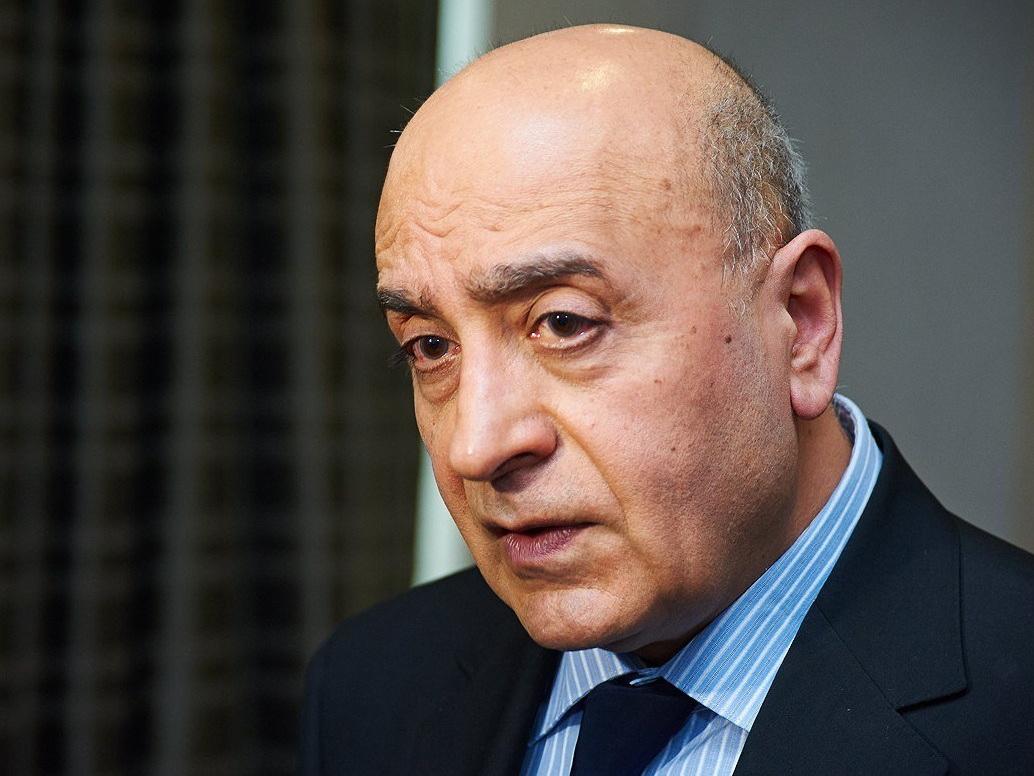Azerbaijan, Russia and Iran to settle things leaving Armenia aside MP Rasim Musabekov's commentary for Caliber.Az
The urgency of launching transport communications via Azerbaijan to Iran and Türkiye has reached a certain breaking point. There are cargos in the world that are extremely difficult to transport by plane and container trucks, while the railroad is the most reliable option in this case. Meanwhile, almost two years of waiting for the main players in the region to unblock communications has been almost in vain. The meeting of representatives of Azerbaijan, Iran, and Russia is expected to help move the matter forward. It's time to finally dot the i's and cross the t's - who wants to act and who is stalling?
The agenda of the trilateral meeting includes the discussion of new projects along the International North-South Transport Corridor, as well as the diversification of routes of this route.
Seyed Abbas Mousavi, Ambassador Extraordinary and Plenipotentiary of Iran in Azerbaijan, told the media that the delegations of Iran, Azerbaijan, and Russia will discuss transit and customs issues, diversification of routes of the North-South transport corridor, as well as the current status of the railway terminal and projects of new border bridges.
This suggests that the agreements between Putin and Raisi, concluded in Tehran and agreed in parallel with Baku, are entering a new phase of implementation. The North-South project was planned long ago and was gradually implemented year by year, but now its full-scale activation is more than urgent for all the regional players, especially for Russia. So the need to intensify work in this direction is extremely high, literally, every day counts.
Will the trilateral consultations touch upon the creation of the Zangazur corridor itself and the likelihood of launching an alternative route via Iran, upon which Baku and Tehran have agreed?
Undoubtedly, Armenia plays a certain role in the issue of launching the Zangazur corridor, but it uses the issue of Zangezur to bargain for some preferences. However, the Zangazur corridor became a symbol of Armenia's failed ambitions, a clear symbol of its surrender. It could have been the most important link in its integration into the region, promising the country fabulous profits.
Armenia, with its revanchist aspirations, is simply not ready to fully realize this fact and needs to be pushed and guided. Perhaps the meeting of representatives of Azerbaijan, Iran, and Russia will be such a stimulating moment, a tool to put pressure on Armenia, if, of course, all the participants in the event agree on a common position. However, there are disagreements, as happens with all major projects.

"The key topic of the meeting is the North-South transport corridor and the completion of the Resht-Astara railroad, but it is more than likely that two options of Zangazur will also be considered - through the territory of Armenia and through the territory of Iran," Rasim Musabekov, a well-known political analyst and member of the Milli Majlis, told Caliber.Az.
According to the political scientist, the length of the section is not so great, but it runs through difficult mountainous terrain, which requires the construction of tunnels and bridges.
"It is important that both Russia and Azerbaijan are ready to participate," Musabekov stressed.
In his opinion, the forthcoming meeting will determine whether or not the railroad will be completed in the next year or two.
"If Russia and Azerbaijan feel that Iran is dragging in this issue, the relevance of the Zangazur corridor as a railway connection of Russia through Azerbaijan with Iran, Türkiye, and Armenia for Moscow will certainly increase," the political scientist noted.
Thus, according to Musabekov, the meeting on North-South in any form will be projected one way or another on how quickly the Zangazur corridor will be implemented.
"The project of Zangazur corridor is quite simple, including the economic costs. Besides, Azerbaijan carries out all the basic work to restore the railway communications on its territory on its own, without needing any financial support from Russia or Iran. The only task is for Russian Railways to quickly restore the Armenian 44-kilometer section through Meghri," Musabekov explained.
As for Iran's position on the launch of Zangazur, which some analysts consider ambiguous, according to the deputy, there are no major disagreements here. Iran fully accepts the creation of the Zangazur transport corridor and even agrees on the creation of a duplicate section of Meghri on its own bank of the Araz.
"If we touch upon the threatening statements of Iran regarding this issue, they are mainly connected with fears that in response to Armenian claims over Karabakh, Azerbaijan may establish its own control over Zangazur, and in this way, Iran will be deprived of the joint border with Armenia," the MP said.
However, Azerbaijan is not planning such escalation, it is imagined by some in Tehran.








